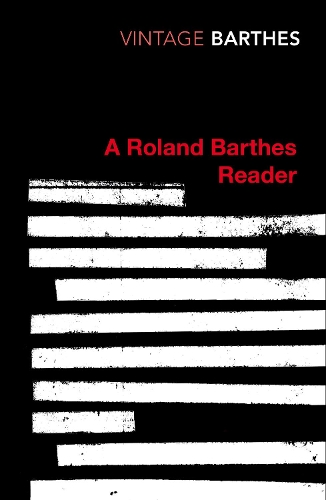
A Roland Barthes Reader
(Paperback)
Publishing Details
A Roland Barthes Reader
By (Author) Roland Barthes
Vintage Publishing
Vintage Classics
4th January 2018
15th July 1993
United Kingdom
Classifications
General
Non Fiction
840.9
Physical Properties
Paperback
560
Width 130mm, Height 198mm, Spine 35mm
446g
Description
An excellent introduction to the intellectual Roland Barthes, whose distinctive philosophy incorporates art, literature and diverse aspects of mainstream culture. 'To read through A Barthes Reader is finally to be left with the image of Barthes as one of the great public teachers of our time' New Republic Edited by Susan Sontag, A Roland Barthes Reader offers a definitive selection of works by the French intellectual Roland Barthes, including seminal essays, such as 'Introduction to the Structural Analysis of Narratives' as well as his more unusual works, such as 'The World of Wrestling'. 'At last, with A Barthes Reader, we have a sort of Michelin guide to one of the most beguiling minds of our era. Smartly introduced by Susan Sontag, the Reader samples Barthes' achievement over three decades' Newsweek
Reviews
To read through A Barthes Reader is finally to be left with the image of Barthes as one of the great public teachers of our time, someone who thought out, argued for, and made available several steps in a penetrating reflection on language, sign systems, texts - and what they have to tell us about the concept of the human * New Republic *
Susan Sontag contributes an informative introduction to this collection and arranges his greatest hits chronologically... This is an excellent entree to a thinker whose precepts have often filtered down into mass culture * Glasgow Herald *
Barthes's work, along with that of Wilde and Valry, gives being an aesthete a good name... Defending the senses, he never betrayed the mind * Susan Sontag *
Author Bio
Roland Barthes was born in 1915 and studied French literature and classics at the University of Paris. After teaching French at universities in Romania and Egypt, he joined the Centre National de Recherche Scientifique, where he devoted himself to research in sociology and lexicology. He was a professor at the College de France until his death in 1980.
